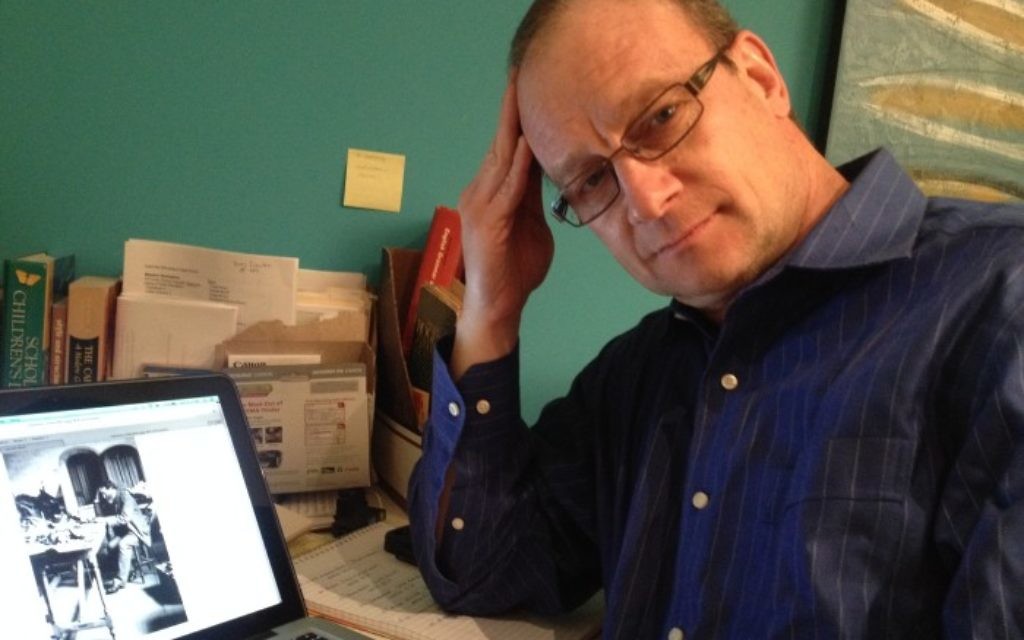Living Amid the Ripples of 9/11
Tuesday, Sept. 11, 2001, began with the regular morning meeting to discuss that day’s news. The president of the United States was traveling to Florida, and POTUS was on my plate as the Washington bureau’s handler on the national desk.
I listened to the meeting at my desk, where I had a bank of television monitors and an intercom that connected me to the D.C. newsroom and studio control room.
At 8:46 a.m. the New York bureau interrupted the call to report that a plane had struck one of the World Trade Center towers.
Get The AJT Newsletter by email and never miss our top stories Free Sign Up
What followed was a chain reaction of sorts, as individuals quickly formed groups to discuss what was needed and just as quickly separated to handle those tasks, this cycle repeating for hours.
Callous as this may sound, my focus was on coordinating reports from multiple locations in and around Washington (and the traveling White House, as Air Force One hopscotched to two military bases before returning). Not until I was driving home, closer to dawn than dusk, did I take time to consider my emotions.
Shy of 3,000 people died that day in New York, at the Pentagon and in a field near Shanksville, Pa.
The immediate priorities were reporting from those sites, the domestic and international response by the U.S. government, and two questions: “Who did this?” and “How could this happen?” In the days and weeks ahead, there would be time to ponder the impact of these acts of terrorism on America the nation and Americans as individuals.
How we live and how we work, our hopes and fears, the way we view the world beyond our borders — all changed that morning in ways that continue to evolve.
After 9/11, Americans exchanged a portion of their civil liberties for a promise of protection from a threat emanating not from a nation-state, but from an ideology. The cry to “do something” spawned a government apparatus given sufficient authority to require removing shoes at the airport, collect citizens’ telephone records and check out what’s checked out at the library.
A worthy read on the successes and failures of this apparatus is “Are We Any Safer?” by Steven Brill in the September issue of The Atlantic.
The work of evaluating every threat, real or perceived, is done by government agencies whose names are well known and barely known at all. Their mantra: “The terrorists have to be right only once, but we have to be right 100 percent of the time.”
For the 0.5 percent of the population in uniform, the past 15 years have meant repeated separations from home and family with deployments to Iraq and Afghanistan. Several thousand troops have been killed, tens of thousands have been wounded, and countless more have not found peace in their homecoming.
Virtually since the day itself, the sins of 9/11 have been visited on people we know as neighbors, friends, classmates, colleagues and professionals we interact with frequently.
Because of terrorism committed in the name of Islam, controversy ensues when American Muslims apply to open a mosque, a school or a cemetery. At a workshop on bullying attended by about 100 Muslim middle and high school students, 90 percent raised a hand when asked if they had been called a terrorist.
For most American Jews, more secure in the blessings of this country, such experiences are (with notable exceptions) more likely to be from a period steadily being consigned to history.
During these 15 years political and ideological divisions within the Jewish community have sharpened and coarsened the tone of discourse. At the extremes, while some Jews devoted themselves to interfaith work and building bridges in response to 9/11, others found in the attacks confirmation of their suspicion and distrust of the “other” in our midst.
We live in the ripples of that terrifying day 15 years ago. On Sept. 11, take time to remember and reflect on how it continues to challenge us, as Americans and as Jews.






comments